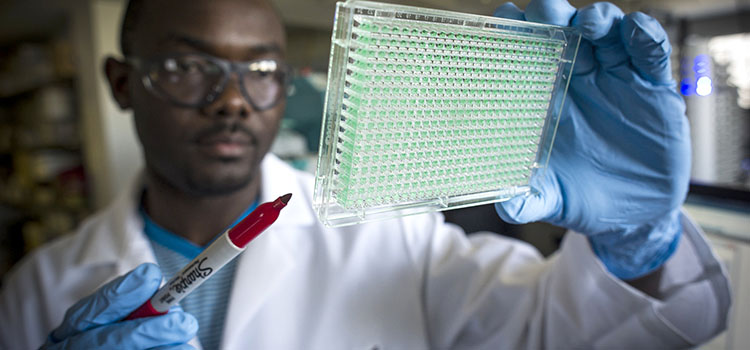
In the UAB Division of Gastroenterology/Hepatology, we are actively engaged in both basic science and clinical research. We maintain comprehensive research facilities and programs that allow us to participate in the development of new understandings and therapies associated with gastrointestinal disorders. Our diverse research programs and centers which include the UAB Liver Center and the UAB Muscosal HIV & Immunobiology Center (MHIC) foster collaborative research projects not only at UAB but throughout the world. We also utilize the Gastroenterology/Hepatology Clinical Research Program (GHCRP), which provides a specialized infrastructure to facilitate clinical research for faculty members.
Current basic science research
-
Regulation of mucosal immune response to antigens in the intestine.
-
Elucidation of pathophysiologic mechanisms underlying chronic intestinal inflammation.
-
Analysis of T cell repertoire in autoimmune human liver disease and viral hepatitis.
-
Animal model to study autoimmune liver disease/cholangiopathies.
-
Mucosal immune responses, particularly the responses of mucosal macrophages to gastrointestinal pathogens, including HIV-1, cytomegalovirus, and H. pylori.
-
Pathogenesis of the biochemical and clinical manifestations in the porphyrias.
-
Gene mutation in bovine protoporphyria.
-
Molecular basis of vascular complications of chronic liver disease with special interest in hepatopulmonary syndrome
Current clinical research
-
Treatment of Zollinger-Ellison Syndrome
-
Viral Hepatitis C
-
New therapies for ulcerative colitis and Crohn’s disease.
-
Mechanisms of host resistance to intestinal infections.
-
Development and application of prolonged ambulatory pH and pressure monitoring in esophageal diseases.
-
Evaluation of the mechanisms and treatments of a variety of gastrointestinal complications associated with HIV infection.
-
Diagnosis and management of acute and chronic pancreatitis.
-
Staging gastrointestinal cancer by endoscopic ultrasonography.
-
Assessment of the diffusion capacity of carbon monoxide in a supine and standing position with a novel intrabreath pulmonary function test in cirrhotics.
-
Protocols for the treatment of viral hepatitis.
-
Novel treatment approaches for gastrointestinal cancers including cholangiocarcinoma, pancreatic cancer, and hepatocellular carcinoma.
-
Outcomes research in gastroesophageal reflux disease, diagnosis and management of pancreatic fluid collections, and endoscopic techniques for the management of biliary diseases.
-
Additionally, division investigators are collaborating with radiologists, pulmonary and ENT specialists to better understand the pathogenesis and treatment of extra-esophageal manifestations of gastroesophageal reflux disease.
-
Non-alcoholic Fatty Liver Disease
-
Sphincter of Oddi Dysfunction (SOD)